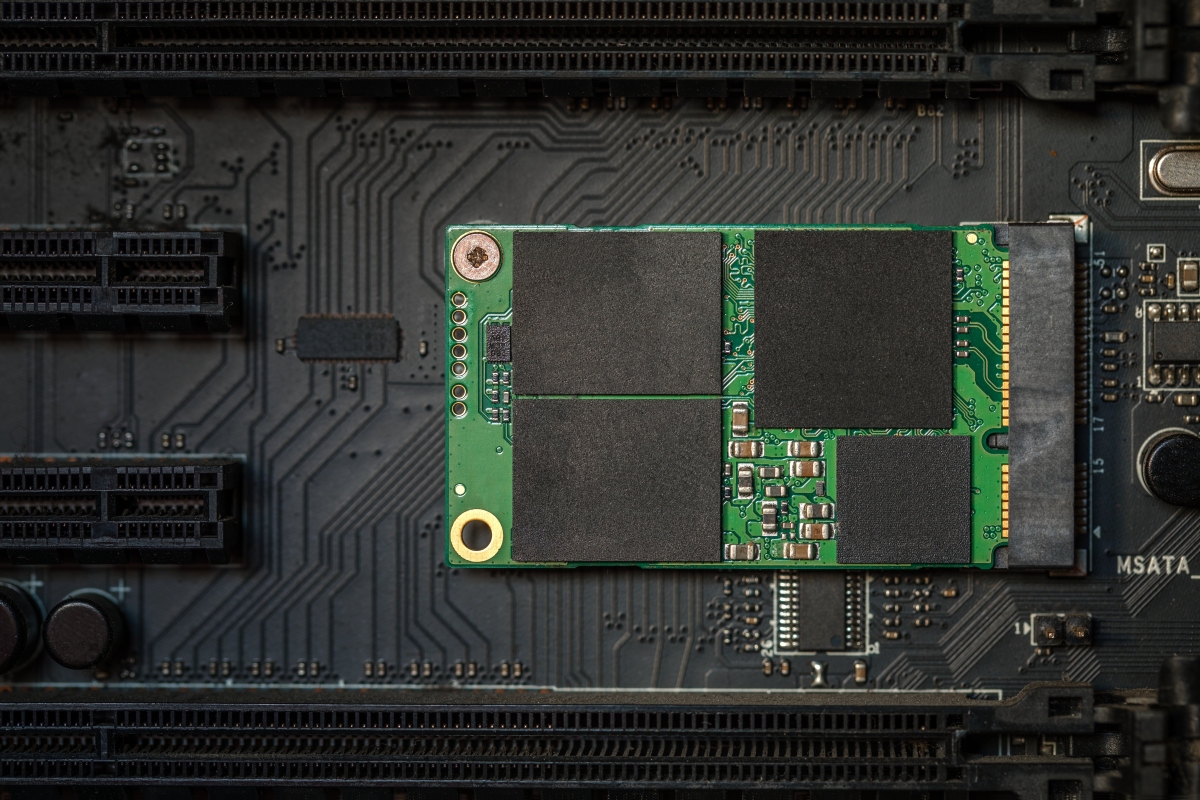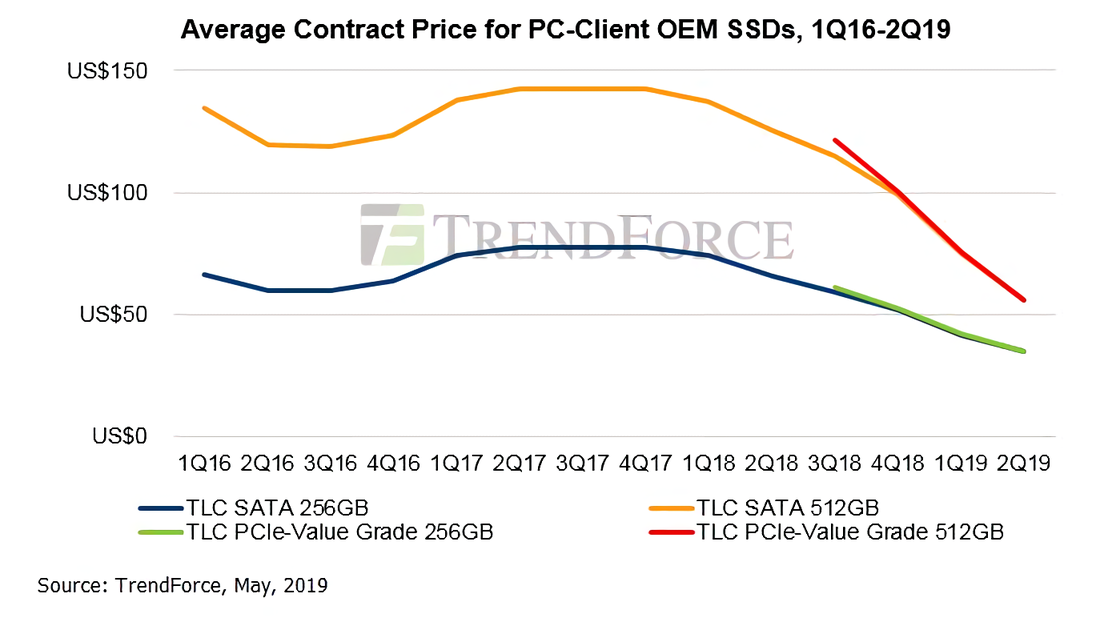The big picture: Continued oversupply in the NAND flash space is pushing suppliers into a price war, resulting in some of the lowest SSD prices we've ever seen. By the end of the year, SSD prices per gigabyte could dip below $0.10 for the first time ever. Time to upgrade your storage?

DRAMeXchange, a division of market intelligence firm TrendForce, said this week that the NAND flash industry is clearly exhibiting signs of oversupply which has lured suppliers into a price war. As such, SSD prices for PC OEMs have dipped dramatically and for the first time ever, contract prices for 512GB and 1TB have a chance to creep below $0.10 per gigabyte by the end of the year.
DRAMeXchange said market conditions will cause 512GB SSDs to replace their 128GB counterparts as mainstream offerings alongside 256GB SSDs. The firm also expects PCIe SSDs to reach 50 percent market penetration as they are nearly identical in price to SATA SSDs. General SSD adoption rates could reach 65 percent this year.

This isn’t exactly a new trend, either. Q2 will mark the sixth consecutive quarter of contract price declines for mainstream PC-Client OEM SSDs.
Reasons for the continued freefall in pricing are aplenty, as DRAMeXchange highlights.
Weakened stocking momentum due to the cautious stance of PC, smartphones and servers/datacenters OEMs towards end market sales and high inventory levels, leading to an overly oversupplied NAND flash market; price wars by leading SSD suppliers who are keen to get their 64/72-layer stocks off their hands; and the price comparison effect as a result of Intel 3D QLC SSDs.
The impact of Intel’s ongoing CPU supply shortage is also a major factor in the overall equation although with the back-to-school season and the holidays not too far off in the distance, stocking demand is expected to improve.
Lead image courtesy SvedOliver via Shutterstock
https://www.techspot.com/news/80027-ssds-pace-reach-lowest-price-gb-ever-year.html